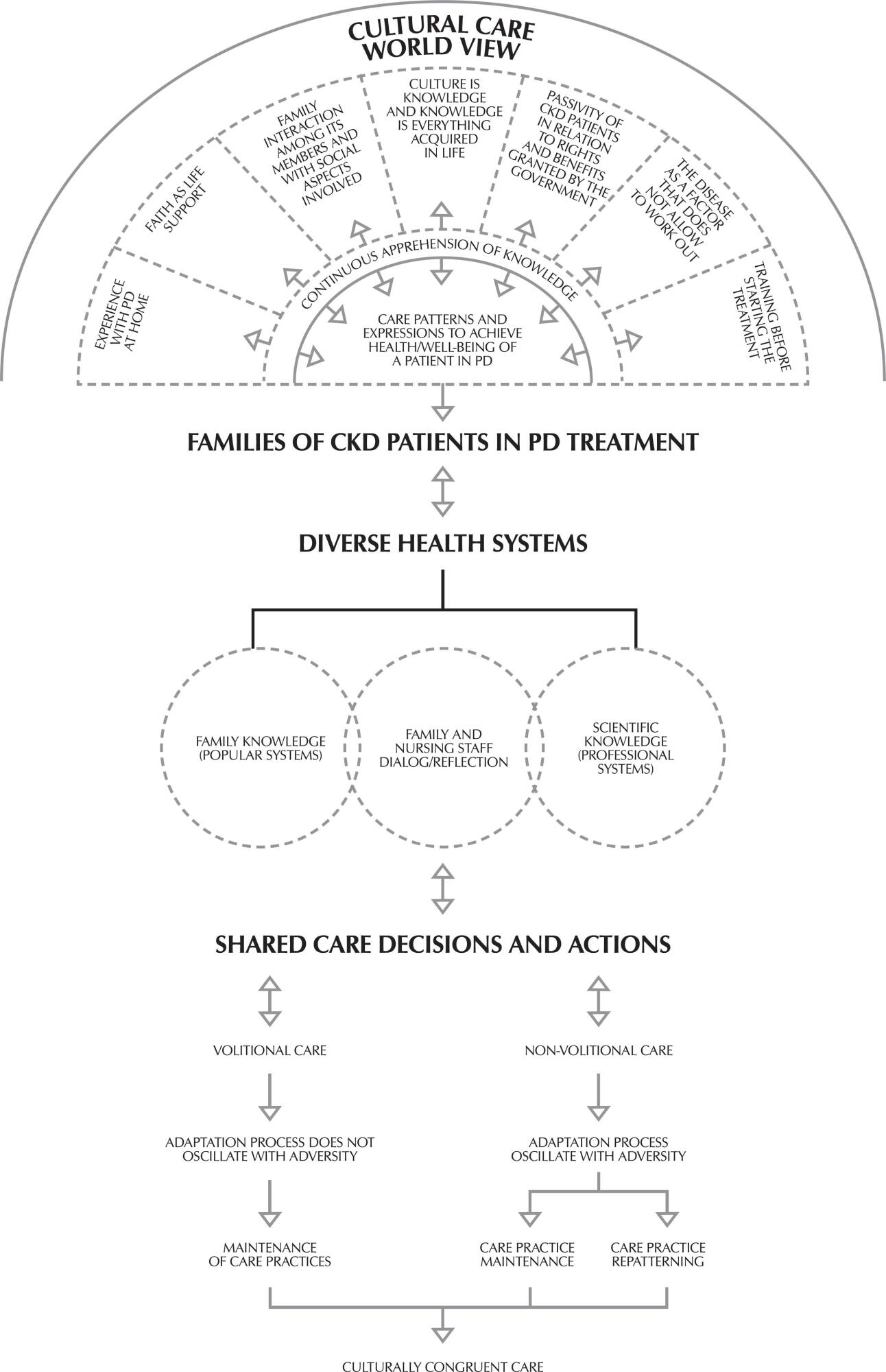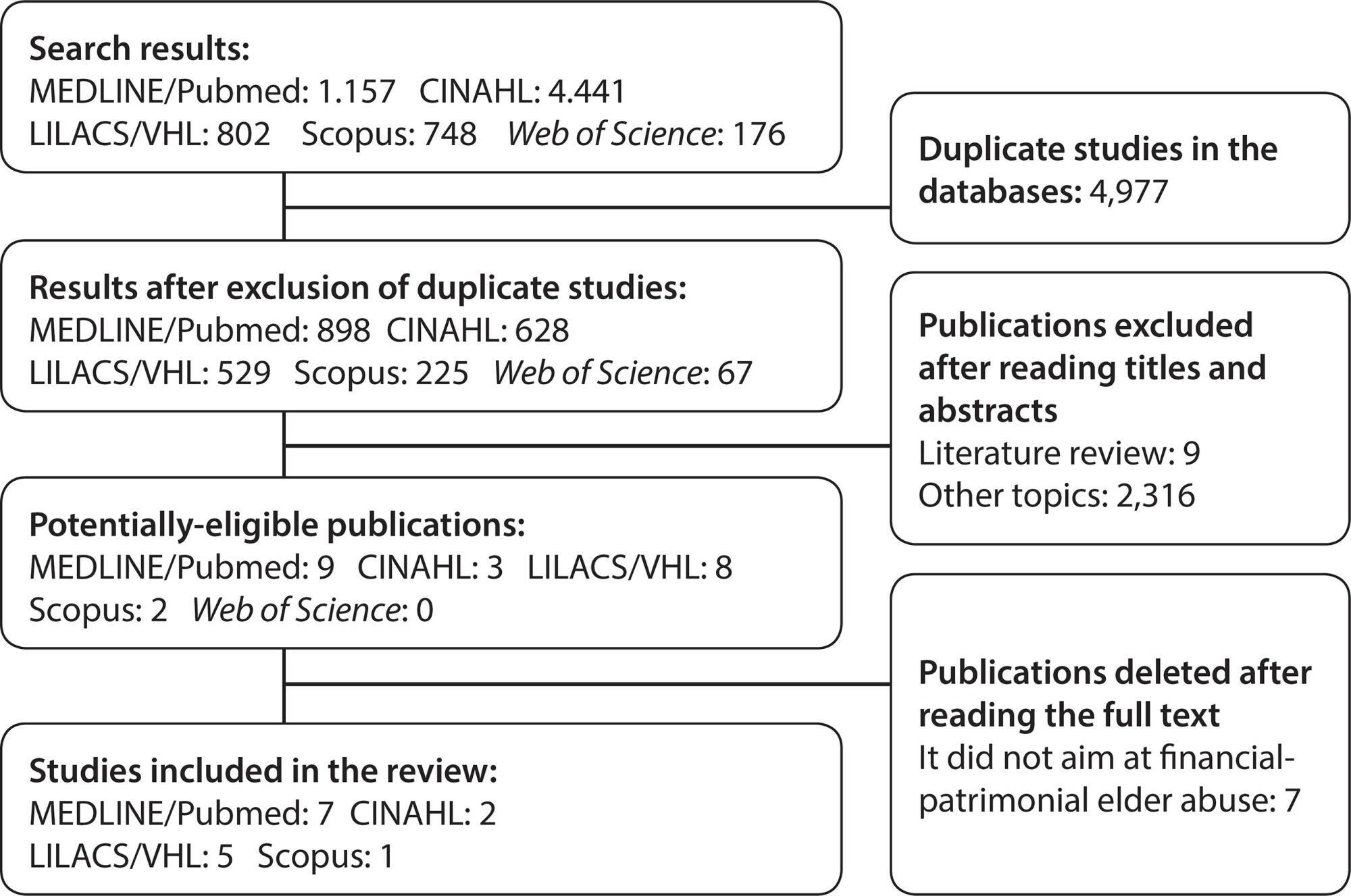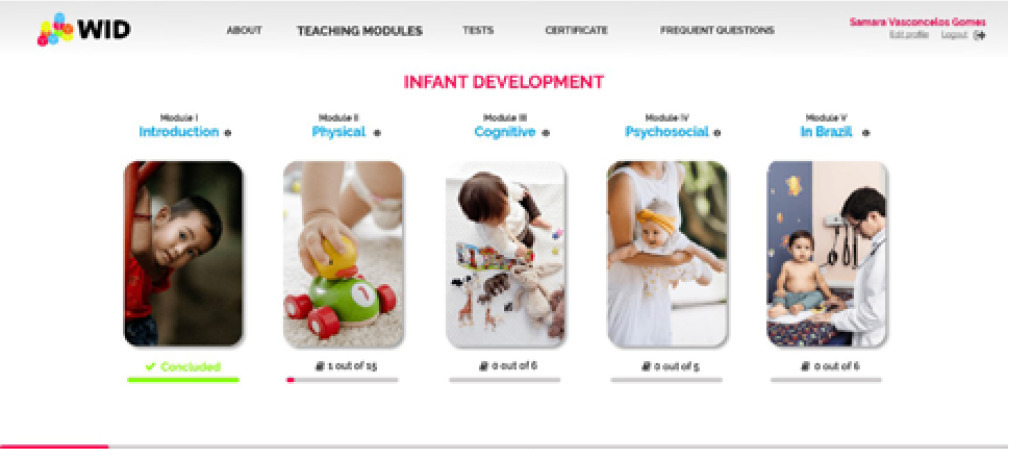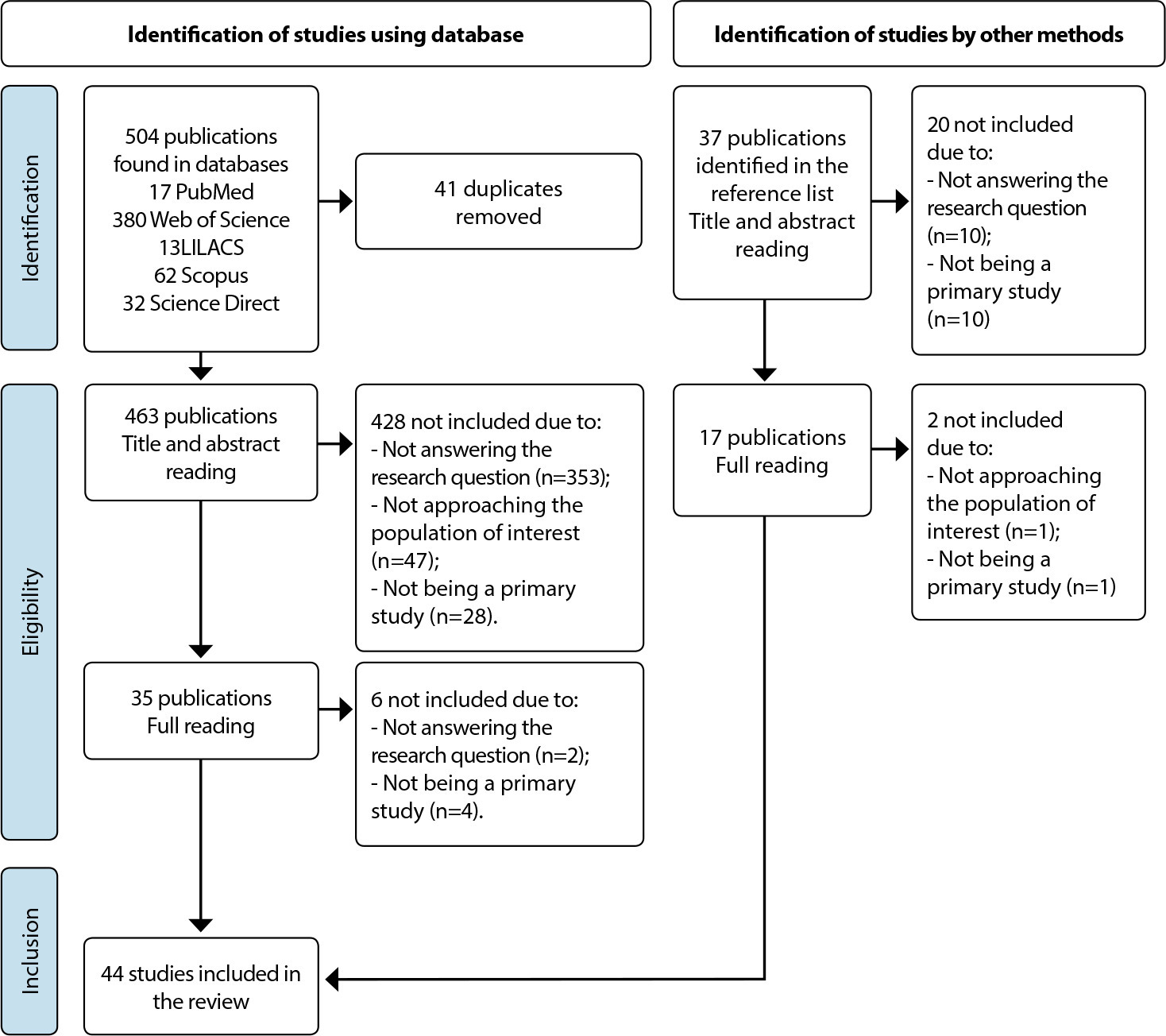-
01-01-2016
Socio-environmental approach in nursing: focusing on rural labor and the use of pesticides
Revista Brasileira de Enfermagem. 2016;69(6):1179-1187
Abstract
Socio-environmental approach in nursing: focusing on rural labor and the use of pesticides
Revista Brasileira de Enfermagem. 2016;69(6):1179-1187
DOI 10.1590/0034-7167-2016-0364
Views0See moreABSTRACT
Objective:
to apply a socio-environmental approach to the relationship between human health and rural labor through a link verification/association between health disorders and the use of pesticides.
Method:
this is a quantitative, cross-sectional, observational and exploratory study with 331 inhabitants of two cities in the state of Rio Grande do Sul, Brazil. Data analysis was conducted by Poisson regression.
Results:
reported health disorders included: mental (62.2%); circulatory (49.8%); dermatologic (45%); respiratory (41%); and gastric (36.2%). Workers who apply pesticides showed a 90% higher prevalence of dermatological alterations when compared to those who did not.
Conclusion:
the socio-environmental approach, comprising elements of the rural environment, of workers, and of the use of pesticides in the work process in connection/association with potential health disorders has shown that rural workers who apply pesticides present a higher prevalence of dermatological alterations.

-
01-01-2016
Peritoneal dialysis: family care for chronic kidney disease patients in home-based treatment
Revista Brasileira de Enfermagem. 2016;69(6):1172-1178
Abstract
Peritoneal dialysis: family care for chronic kidney disease patients in home-based treatment
Revista Brasileira de Enfermagem. 2016;69(6):1172-1178
DOI 10.1590/0034-7167-2016-0262
Views0See moreABSTRACT
Objective:
to propose a family care model for patients with chronic kidney disease in peritoneal dialysis based on evidence indicated by family members.
Method:
this was a qualitative descriptive study that used the Convergent Care Research method. It was conducted at a state hospital in Rio de Janeiro, including techniques for recording individual interviews and consisted of a group of 19 study participants. Data were analyzed according to the stages proposed by the method, generating a category that used a cultural question as the basis for patient care resulting in a proposal for home-based family care.
Results:
the patient care model proposed includes dialogue and reflection in sharing the knowledge of “professional” and “popular” systems, aiming to improve the patient’s quality of life.
Conclusion:
family members were able to promote care based on cultural preservation, accommodation and repatterning, as proposed by Leininger’s Sunrise Model.

-
01-01-2016
Technology for self-care for ostomized women’s sexual and reproductive health
Revista Brasileira de Enfermagem. 2016;69(6):1164-1171
Abstract
Technology for self-care for ostomized women’s sexual and reproductive health
Revista Brasileira de Enfermagem. 2016;69(6):1164-1171
DOI 10.1590/0034-7167-2016-0302
Views0See moreABSTRACT
Objective:
to validate the technology of printed booklets on self-care for ostomized women’s sexual and reproductive health.
Method:
a methodological study was performed with a focus on the construction and validity of a printed booklet. The content of this booklet was validated by 11 specialist judges/nurses, according to a Content Validity Index (CVI) equal to or higher than 0.80. Appearance was validated by nine ostomized women, according to an assessment of the difficulty and convenience of the educational material.
Results:
the booklet was validated by specialists, with an overall mean CVI equal to 0.87. Moreover, the target population showed 100% of agreement in terms of the adequacy of organization, writing style, appearance and motivation of this booklet.
Conclusion:
the educational technology in question was validated according to content and appearance, thus representing an adequate, reliable and easily understandable resource to acquire knowledge about self-care for ostomized women’s sexual and reproductive health.

-
01-01-2016
Short-course therapy for tuberculosis: a discourse analysis
Revista Brasileira de Enfermagem. 2016;69(6):1154-1163
Abstract
Short-course therapy for tuberculosis: a discourse analysis
Revista Brasileira de Enfermagem. 2016;69(6):1154-1163
DOI 10.1590/0034-7167-2016-0330
Views0See moreABSTRACT
Objective:
to analyze the meanings produced by nursing professionals in the directly observed treatment (DOT) for tuberculosis (TB) in the city of São Paulo.
Method:
this is a qualitative study, conducted in March and April 2014 through semi-directed interviews with nine nurses. The empirical material produced was analyzed according to the theoretical and methodological support of the Discourse Analysis of French matrix.
Results:
results have emerged as three discursive blocks: conditions for the production of tuberculosis control practices; production conditions facilitating the treatment of tuberculosis; and production conditions hindering the treatment of tuberculosis.
Conclusion:
these professionals’ words produce different meanings, which suggest that the practices of nursing professionals allow the patient to search for a cure, which is reinforced by incentives of a social nature, but permeated by the vicissitudes that are circumscribed in the ill person’s everyday production conditions.
-
01-01-2016
Aids in the elderly: reasons that lead to late diagnosis
Revista Brasileira de Enfermagem. 2016;69(6):1140-1146
Abstract
Aids in the elderly: reasons that lead to late diagnosis
Revista Brasileira de Enfermagem. 2016;69(6):1140-1146
DOI 10.1590/0034-7167-2016-0370
Views0See moreABSTRACT
Objective:
to investigate elderly living with HIV/Aids and health professionals, what are the reasons that lead to late diagnosis of HIV infection in the elderly.
Method:
prospective, qualitative study, conducted at a specialized outpatient clinic with elderly living with HIV/Aids, diagnosed age over 60 years and in the Family Health Strategy units with nurses and physicians. Data were collected through interviews and verified by content analysis, using the theoretical framework of vulnerability.
Results:
a total of 11 elderly, 11 nurses and 12 physicians participated in the study. Three empirical categories emerged: the late diagnosis of HIV happens against the health service; invisibility of the sexuality of the elderly; and weaknesses in the anti-HIV serology request for the elderly.
Conclusion:
there are health professionals who see the elderly as asexual, causing the diagnosis of HIV to happen in the secondary and tertiary service instead of primary care.
-
01-01-2016
Storytelling: a care technology in continuing education for active ageing
Revista Brasileira de Enfermagem. 2016;69(6):1132-1139
Abstract
Storytelling: a care technology in continuing education for active ageing
Revista Brasileira de Enfermagem. 2016;69(6):1132-1139
DOI 10.1590/0034-7167-2016-0390
Views0See moreABSTRACT
Objective:
assessing relevance and effectiveness of care/educational technology in the form of “storytelling” as a strategy in the cultivation of active ageing (AA) for elderly users of a Basic Health Unit (BHU), from the Amazon region.
Method:
convergent care research (CCR) held in a BHU in Belém, state of Pará, with eight elderly ladies for testing this technology. An active ageing assessment questionnaire and WHOQOL-BREF – quality of life assessment were applied. After training with a view to continuing education, elderly ladies told stories for an audience that addressed the question: “What did you learn from it for your life?”
Results:
tThe popular stories elicited reactions from which the following categories emerged: solidarity; respect for the other; imagination, dreams, hopes and culture of the Amazonian. This practice had a positive result, producing changes in the quality of life of the elderly, particularly in the psychological domain.
Conclusion:
“storytelling” proved to be an innovative technology, a relevant and effective resource in health education, especially for active ageing.

-
01-01-2016
Nurse care practices in the Family Health Strategy
Revista Brasileira de Enfermagem. 2016;69(6):1124-1131
Abstract
Nurse care practices in the Family Health Strategy
Revista Brasileira de Enfermagem. 2016;69(6):1124-1131
DOI 10.1590/0034-7167-2016-0273
Views1See moreABSTRACT
Objective:
to analyze the practices of care of nurses working in teams of the family health strategy, from the perspective of users.
Method:
qualitative research conducted with 34 registered users in seven family health units of a municipality of Bahia from June to December 2014. The results were organized by the technique of content analysis.
Results:
users showed satisfaction with the nurse care due to listening, warmth and resolution of their health needs, despite the emphasis on procedures and programs targeted to populational groups. The dissatisfaction stems from the authoritarian, prescriptive and inflexible attitude in the nurse care. It was also emphasized that the home visits are directed to the bedridden and more restricted to preventive actions. Educational activities occur during the nursing consultation and in the health unit.
Conclusion:
there is urgent need of redefining the care as a structuring axis of the nurse practice.
-
01-01-2016
Interdisciplinary care praxis in groups of people living with fibromyalgia
Revista Brasileira de Enfermagem. 2016;69(6):1115-1123
Abstract
Interdisciplinary care praxis in groups of people living with fibromyalgia
Revista Brasileira de Enfermagem. 2016;69(6):1115-1123
DOI 10.1590/0034-7167-2016-0279
Views0See moreABSTRACT
Objectives:
to analyze the integrated community therapy model for the empowerment of people living with fibromyalgia and discuss the impact of this interdisciplinary intervention in the health-disease process and self-care.
Method:
a participatory-approach qualitative study, developed in 2015 with 11 participants at the Laboratory of Physiology Applied to Physical Education of the Rio de Janeiro State University, RJ. Data production comprised World Café, participant observation and semi-structured interview. The analysis was performed according to Bardin, through data triangulation in dialogue with the relevant literature.
Results:
the integrated community therapy group is a driving force in building and expanding knowledge about fibromyalgia and in self-care empowerment.
Conclusion:
this group strategy proved to be an interdisciplinary praxis tool that enables the development of solidary care networks. Thus, shared knowledge was generated, transformed into a listening and reflection environment to manage personal and family obstacles.
-
REVIEW12-05-2019
Financial-patrimonial elder abuse: an integrative review
Revista Brasileira de Enfermagem. 2019;72:328-336
Abstract
REVIEWFinancial-patrimonial elder abuse: an integrative review
Revista Brasileira de Enfermagem. 2019;72:328-336
DOI 10.1590/0034-7167-2018-0703
Views0See moreABSTRACT
Objective:
to analyze the available evidence in the nursing literature about financial-patrimonial elder abuse.
Method:
integrative review of articles indexed in the databases CINAHL, Scopus, Web of Science, LILACS and MEDLINE, from 2007 to 2017. The combination of controlled and uncontrolled descriptors was used in Portuguese, English and Spanish.
Results:
15 studies developed in seven countries were included. In the thematic analysis, three categories emerged: epidemiological data, risk factors and institutions providing services to the elderly. The occurrence of this type of violence concomitantly to the other subtypes was highlighted among the most frequent.
Final considerations:
the literature points to important epidemiological data, risk factors and characteristics of this type of violence, including within institutions providing services to the elderly, in different countries, essential aspects for structuring and rethinking public policies for protection and appreciation of the elderly.

-
ORIGINAL ARTICLE07-06-2020
Vulnerability in the health of young transgender women living with HIV/AIDS
Revista Brasileira de Enfermagem. 2020;73(5):e20190046
Abstract
ORIGINAL ARTICLEVulnerability in the health of young transgender women living with HIV/AIDS
Revista Brasileira de Enfermagem. 2020;73(5):e20190046
DOI 10.1590/0034-7167-2019-0046
Views0See moreABSTRACT
Objectives:
to analyze the health vulnerability of young female transgender living with HIV/AIDS.
Methods:
qualitative, descriptive, and exploratory study, based on the theoretical reference of Social Representation and concept of vulnerability; developed with six transgender women in a reference Hospital for HIV/AIDS. We analyzed the individual interviews, recorded, and transcribed in full, in the IRaMuTeQ software by Similitude Analysis.
Results:
the thematic categories are listed based on the Ayres reference: 1) Individual dimension of vulnerability to HIV/AIDS; 2) Social dimension of vulnerability to HIV/AIDS; 3) Programmatic dimension of the vulnerability.
Final Considerations:
the young female transsexual living with HIV/AIDS experience a context of vulnerability in health associated with a lack of knowledge and difficulties for the realization of self-care. The study evidenced the representations of social abjection and unpreparedness of the health team that compose the Primary Attention in Health in promoting qualified assistance for the execution of the effective and humanized care.
-
12-13-2019
Women’s health during pregnancy, childbirth and puerperium: 25 years of recommendations from international organizations
Revista Brasileira de Enfermagem. 2019;72:1-2
Abstract
Women’s health during pregnancy, childbirth and puerperium: 25 years of recommendations from international organizations
Revista Brasileira de Enfermagem. 2019;72:1-2
DOI 10.1590/0034-7167-2019-72suppl301
Views1Women’s health during pregnancy, childbirth and the puerperium has been a concern of international bodies since the 1994 United Nations International Conference on Population and Development in Cairo, Egypt. This conference had as theme Women’s Health and Safe Motherhood. The rationale for choosing the theme was that pregnancy and childbirth-related complications were among the leading […]See more -
ORIGINAL ARTICLE04-22-2020
(Dis)continuation of care of the pre-term newborn at the border
Revista Brasileira de Enfermagem. 2020;73(3):e20180827
Abstract
ORIGINAL ARTICLE(Dis)continuation of care of the pre-term newborn at the border
Revista Brasileira de Enfermagem. 2020;73(3):e20180827
DOI 10.1590/0034-7167-2018-0827
Views0See moreABSTRACT
Objectives:
to understand how continuation of care for the preterm newborn in the health care network at the border.
Methods:
the Grounded Theory was the methodological framework. Data were collected through 17 semi-structured interviews between July 2016 and March 2017.
Results:
“Describing the structure and functioning of the Child Nutrition Center” represents the context; “Experiencing and signifying premature birth” are the causal conditions; “Identifying conditions that intervene in the process of continuation of care for the preterm newborn” are the intervening conditions; “Ensuring continuation of care for the preterm newborn” are strategies; “Identifying (dis)continuation of care flows for the preterm newborn at the border” are the study’s consequences and phenomenon.
Final Considerations:
there is a need to plan referral and counter-referral flows of the preterm newborn and the commitment of public health managers to ensure continuation of care.
-
ORIGINAL ARTICLE05-09-2022
Wise Infant Development®: creation of a software for teaching in pediatric nursing education
Revista Brasileira de Enfermagem. 2022;75(5):e20210466
Abstract
ORIGINAL ARTICLEWise Infant Development®: creation of a software for teaching in pediatric nursing education
Revista Brasileira de Enfermagem. 2022;75(5):e20210466
DOI 10.1590/0034-7167-2021-0466
Views0See moreABSTRACT
Objectives:
to create a software application for nursing education on child development assessment.
Methods:
this is a methodological applied research developed in three stages: analysis, design, and development. Product quality characteristics from the ISO/IEC 25010 standards were adopted. The programming language used was JavaScript. The educational software was developed based on a constructivist cognitive theory.
Results:
it was possible to create the software from the following quality metrics: functional suitability, reliability, usability, performance efficiency, compatibility, security, maintainability, and portability. The technology addresses child development in physical, cognitive, and psychosocial domains and how this assessment should be carried out in Brazil. The software has pre and posttests, 5 learning modules, certificate issuance, support for doubts, and an administrative panel. Final Considerations: it is concluded that the software adds to the existing tools for child development monitoring, facilitating students’ knowledge acquisition in promoting child health.

-
12-04-2023
Nursing and the Sustainable Development Goals (SDGs): An Essential Commitment
Revista Brasileira de Enfermagem. 2023;76(6):e760601
Abstract
Nursing and the Sustainable Development Goals (SDGs): An Essential Commitment
Revista Brasileira de Enfermagem. 2023;76(6):e760601
DOI 10.1590/0034-7167.2023760601
Views0The Sustainable Development Goals (SDGs) are a global initiative launched by the United Nations (UN) in September 2015 as part of the 2030 Agenda for Sustainable Development, whose objectives summarize a universal call to action to end poverty, protect the environment and ensure that all people have access to opportunities and well-being, all in an […]See more -
REVIEW04-22-2022
Health needs of mothers of children with Congenital Zika Syndrome: an integrative review
Revista Brasileira de Enfermagem. 2022;75:e20210540
Abstract
REVIEWHealth needs of mothers of children with Congenital Zika Syndrome: an integrative review
Revista Brasileira de Enfermagem. 2022;75:e20210540
DOI 10.1590/0034-7167-2021-0540
Views0See moreABSTRACT
Objectives:
to evidence and analyze the health needs of mothers of children with Congenital Zika Syndrome.
Methods:
a total of 44 articles published between October/2015 and March/2021 on PubMed, LILACS, Scopus, Web of Science and Science Direct were included. The RTI bank and CASP score were applied to classify the methodological quality of the studies. Reflective content analysis and Cecílio and Matsumoto’s taxonomy were used for analysis. Visual map was used as a technique for presenting the results.
Results:
mothers need access to social protection, family-centered, multi-professional empathetic monitoring, cultivating bonds and affection by professionals, sharing of care between health network services, strengthening the social support network and fostering coexistence groups between them.
Final Considerations:
intersectoral initiatives must be implemented for better housing conditions, fighting stigma, holding parents accountable and resuming life project.

-
REFLECTION12-21-2020
War against the COVID-19 pandemic: reflection in light of Florence Nightingale’s nursing theory
Revista Brasileira de Enfermagem. 2020;73:e20200371
Abstract
REFLECTIONWar against the COVID-19 pandemic: reflection in light of Florence Nightingale’s nursing theory
Revista Brasileira de Enfermagem. 2020;73:e20200371
DOI 10.1590/0034-7167-2020-0371
Views0See moreABSTRACT
Objective:
To reflect on the relationship and importance of the environmental theory regarding practices for promotion, prevention, and treatment of COVID-19.
Methods:
A theoretical-reflexive study about the COVID-19 pandemic in light of the environmental theory proposed by Florence Nightingale.
Results:
It is observed that the application of the theoretical foundations proposed by the environmental theory is related to the current practices used in the fight against the COVID-19 pandemic.
Final Considerations:
It is believed that the theoretical basis is fundamental for the critical-reflexive training of the nursing professional, for the consolidation of Nursing as a science; therefore, it could provide a foundation in nowadays battle against the pandemic.
Search
Search in:
Nuvem de Tags
Adolescente (85) Atenção Primária à Saúde (239) COVID-19 (91) Criança (91) Cuidados de Enfermagem (269) Educação em Enfermagem (151) Educação em Saúde (139) Enfermagem (930) Enfermagem Pediátrica (86) Estudantes de Enfermagem (77) Estudos de Validação (131) Família (87) Idoso (208) Promoção da Saúde (99) Qualidade de Vida (104) Saúde do Trabalhador (86) Saúde Mental (145) Saúde Pública (82) Segurança do Paciente (150) Tecnologia Educacional (100)



